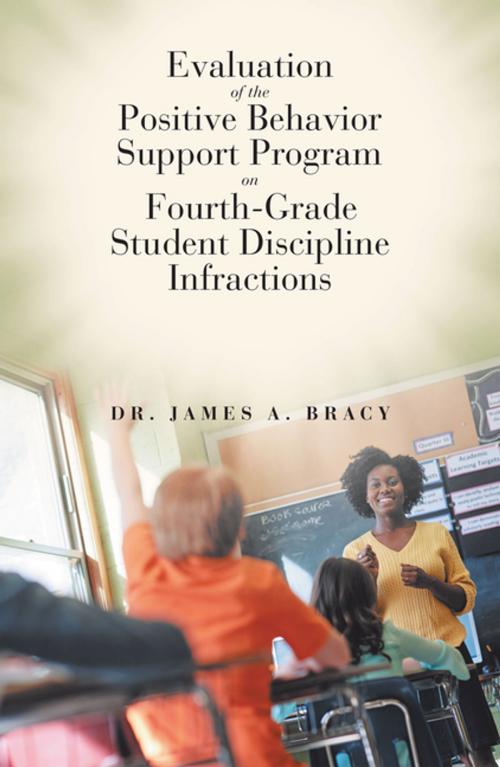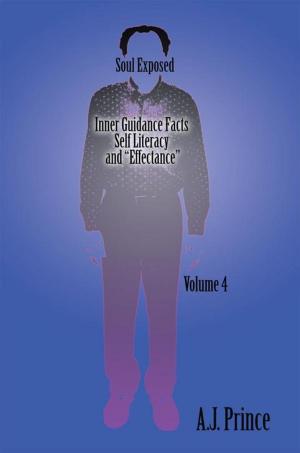Evaluation of the Positive Behavior Support Program on Fourth-Grade Student Discipline Infractions
Nonfiction, Social & Cultural Studies, Social Science, Sociology, Reference & Language, Education & Teaching, Health & Well Being, Psychology| Author: | Dr. James A. Bracy | ISBN: | 9781546228820 |
| Publisher: | AuthorHouse | Publication: | February 17, 2018 |
| Imprint: | AuthorHouse | Language: | English |
| Author: | Dr. James A. Bracy |
| ISBN: | 9781546228820 |
| Publisher: | AuthorHouse |
| Publication: | February 17, 2018 |
| Imprint: | AuthorHouse |
| Language: | English |
Prior to implementation of this the program, students with increased antisocial behaviors were becoming more disruptive to the learning environment on a regular basis. Because much of the instructional time is being spent correcting these behaviors, the academic progression of students has been decreasing. To limit distractions, disruptive students need to be remediated and counseled on problems and solutions. The Positive Behavior Support (PBS) program is an alternative to giving students negative attention by rewarding them for good behavior and teaching them that good choices breed good consequences. The purpose of the study was to examine the implementation of a PBS program and its effectiveness in diminishing undesirable behaviors. Results showed that the PBS program did diminish the behavior based on the number of referrals received in the preintervention school year and the postintervention school year. Nevertheless, some teachers and parents believed that the PBS program could be improved for total effectiveness of the program. Surveys on the PBS program were administered to parents, students, and staff. Seventy-two percent of parents indicated that the PBS program was an effective means of curbing the number of student code of conduct violations, although 60 percent of all the parents thought that it could be more effective if there were some changes made to the program. Seventy-one percent of the students liked the program, but just as the parents, 35 percent of them believed that there were some changes that needed to be made. As for the faculty of the target school, 60 percent believed that the program was effective, but 85 percent believed that some changes needed to be made. All the stakeholders agreed that, overall, the program was effective in curbing student code of conduct violations, but with a few simple changes, it could be much more effective. Implications for future research were discussed. More studies should be conducted for students with deeply rooted societal problems and for exceptional learners who have a greater need for counseling. An overall discussion of the perceptions of major stakeholders on the PBS program regarding the programs implementation and its effectiveness was provided. The researcher also discussed the significance of the study in light of schools that are searching for behavior-intervention programs to help decrease their incidences of behavior referrals. The limitations of the study were discussed, and the implications for school administrators and faculty members were provided. Recommendations were made for further studies.
Prior to implementation of this the program, students with increased antisocial behaviors were becoming more disruptive to the learning environment on a regular basis. Because much of the instructional time is being spent correcting these behaviors, the academic progression of students has been decreasing. To limit distractions, disruptive students need to be remediated and counseled on problems and solutions. The Positive Behavior Support (PBS) program is an alternative to giving students negative attention by rewarding them for good behavior and teaching them that good choices breed good consequences. The purpose of the study was to examine the implementation of a PBS program and its effectiveness in diminishing undesirable behaviors. Results showed that the PBS program did diminish the behavior based on the number of referrals received in the preintervention school year and the postintervention school year. Nevertheless, some teachers and parents believed that the PBS program could be improved for total effectiveness of the program. Surveys on the PBS program were administered to parents, students, and staff. Seventy-two percent of parents indicated that the PBS program was an effective means of curbing the number of student code of conduct violations, although 60 percent of all the parents thought that it could be more effective if there were some changes made to the program. Seventy-one percent of the students liked the program, but just as the parents, 35 percent of them believed that there were some changes that needed to be made. As for the faculty of the target school, 60 percent believed that the program was effective, but 85 percent believed that some changes needed to be made. All the stakeholders agreed that, overall, the program was effective in curbing student code of conduct violations, but with a few simple changes, it could be much more effective. Implications for future research were discussed. More studies should be conducted for students with deeply rooted societal problems and for exceptional learners who have a greater need for counseling. An overall discussion of the perceptions of major stakeholders on the PBS program regarding the programs implementation and its effectiveness was provided. The researcher also discussed the significance of the study in light of schools that are searching for behavior-intervention programs to help decrease their incidences of behavior referrals. The limitations of the study were discussed, and the implications for school administrators and faculty members were provided. Recommendations were made for further studies.















